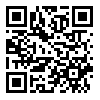Volume 2, Issue 1 (Winter 2022)
J Clin Sport Neuropsychol 2022, 2(1): 1-13 |
Back to browse issues page
Research code: 113217542953201400162486672
Download citation:
BibTeX | RIS | EndNote | Medlars | ProCite | Reference Manager | RefWorks
Send citation to:



BibTeX | RIS | EndNote | Medlars | ProCite | Reference Manager | RefWorks
Send citation to:
Nasirinasab Z, Faraokhzad P. The Relationship between Coronavirus Phobia, Depression, Anxiety, Stress, and Emotion-Regulation in People who Recovered from COVID-19. J Clin Sport Neuropsychol 2022; 2 (1) : 1
URL: http://jcsnp.ir/article-1-19-en.html
URL: http://jcsnp.ir/article-1-19-en.html
1- M.Sc. of Clinical Psychology, Chalous Branch, Islamic Azad University, Chalous, Iran
2- Assistant Professor, Department of Psychology, Roudehen Branch, Islamic Azad University, Tehran, Iran
2- Assistant Professor, Department of Psychology, Roudehen Branch, Islamic Azad University, Tehran, Iran
Abstract: (924 Views)
Background and Purpose: ar is an exaggerated, unreasonable, constant, and excessive concern for situations and objects. During the coronavirus disease-19 (COVID-19) pandemic, many people, unfortunately, became infected, and some died. Many people who recovered from COVID-19 have many physical and psychological issues; the fear of Corona as germophobia is one of these concerns. This study aimed to investigate the association of depression, anxiety, and emotional regulation with the fear of Corona in improved people from COVID-19 in Tehran.
Method: The present study was a descriptive correlation method. The population includes people who recovered from Corona habited in Tehran in 2021. From them, 125 participants were selected by the convenience sampling method. The participants completed the Germophobia Questionnaire (Alavizadeh et al., 2021), the Cognitive Emotion Regulation (CER) questionnaire (Garnefski et al., 2001), and the Depression, Anxiety, and Stress Scale-21 (DASS-21) (Lovibond & Lovibond, 1998). Pearson correlation coefficient and multiple regression analysis were used to analyze the data.
Results: The results showed that the three components of cognitive emotion regulation (rumination, catastrophe, and perception and perspective) and the fear of Corona have a significant relationship, and its other components (self-blame, acceptance of circumstances, the blame of others, positive refocus on planning, positive reassessment) were not significant. There is a positive relationship between rumination and catastrophic perception and fear of Corona and a negative association with perception and fear of Corona. The results indicate the relationship between anxiety and depression with the degree of fear of Corona.
Conclusion: Based on the results of this study, it is suggested that mental health professionals consider the crucial role of anxiety, depression, and emotion regulation in fear of Corona in people who recovered from Corona by teaching emotion regulation skills to people recovered from Corona, probably their mental health can be improved.
Method: The present study was a descriptive correlation method. The population includes people who recovered from Corona habited in Tehran in 2021. From them, 125 participants were selected by the convenience sampling method. The participants completed the Germophobia Questionnaire (Alavizadeh et al., 2021), the Cognitive Emotion Regulation (CER) questionnaire (Garnefski et al., 2001), and the Depression, Anxiety, and Stress Scale-21 (DASS-21) (Lovibond & Lovibond, 1998). Pearson correlation coefficient and multiple regression analysis were used to analyze the data.
Results: The results showed that the three components of cognitive emotion regulation (rumination, catastrophe, and perception and perspective) and the fear of Corona have a significant relationship, and its other components (self-blame, acceptance of circumstances, the blame of others, positive refocus on planning, positive reassessment) were not significant. There is a positive relationship between rumination and catastrophic perception and fear of Corona and a negative association with perception and fear of Corona. The results indicate the relationship between anxiety and depression with the degree of fear of Corona.
Conclusion: Based on the results of this study, it is suggested that mental health professionals consider the crucial role of anxiety, depression, and emotion regulation in fear of Corona in people who recovered from Corona by teaching emotion regulation skills to people recovered from Corona, probably their mental health can be improved.
Article number: 1
Keywords: phobic disorders [MeSH], Anxiety [MeSH], depression [MeSH], cognitive emotion regulation [MeSH], COVID-19 [MeSH]
Type of Study: Research |
Subject:
Clinical Psychology
Received: 2021/11/9 | Accepted: 2022/01/9 | Published: 2022/02/4
Received: 2021/11/9 | Accepted: 2022/01/9 | Published: 2022/02/4
| Rights and permissions | |
 |
This work is licensed under a Creative Commons Attribution-NonCommercial 4.0 International License. |





